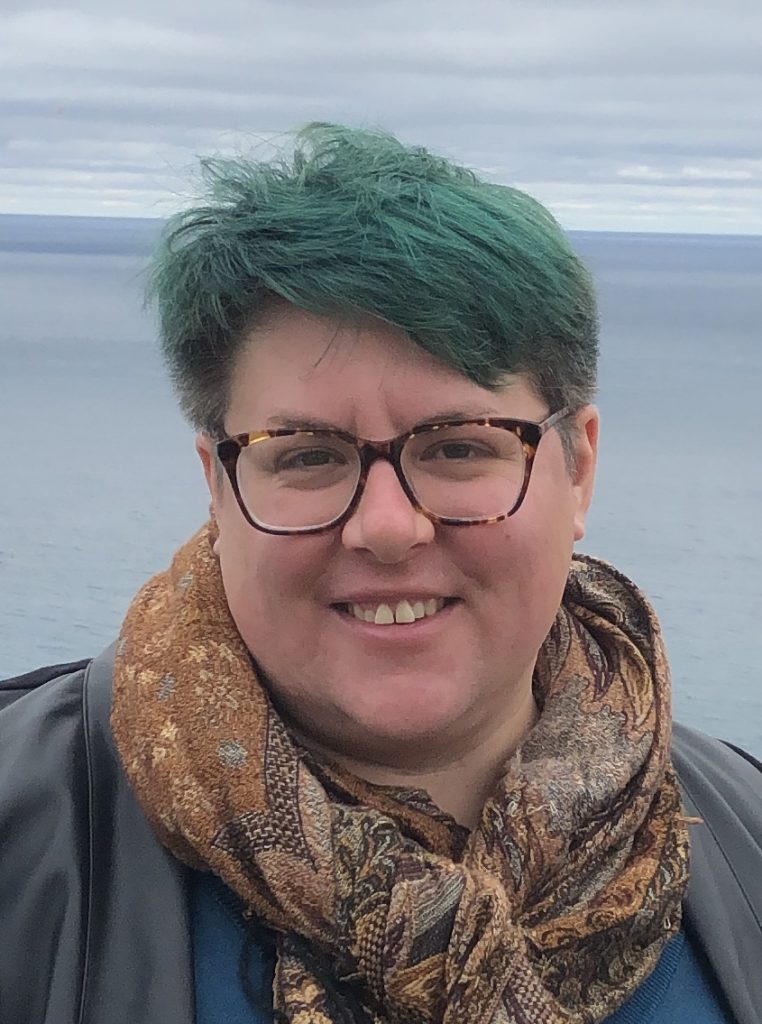
Congratulations to Angie Fazekas, who successfully defended her doctoral dissertation, Creative Becomings: Explicit Fanfiction, Reinventing Adolescence and Queer Relationality.
Angie was supervised by Professor Dina Georgis with Patrick Keilty and Leslie Shade as committee members. The external examiner was Benjamin Woo of Carleton University.
Dr. Fazekas is currently working as an Assistant Professor, Teaching Stream at WGSI, teaching Gender and Popular Culture and Pleasure, Pleasure, Pleasure. She is also working on a few different writing projects, including a co-written paper on the Jurassic Park film series, as well as co-editing an issue of Transformative Works and Cultures on Transfandoms.
Angie’s dissertation is an interdisciplinary study into the experiences of adolescent fans in online fan spaces, particularly as they interact with sexually explicit fanfiction. Drawing together the threads of queer theory, adolescent sexuality, critical race theory, and fan studies, she uses debates about teenagers and access to pornographic fanfiction as a starting point for a wider consideration of queer adolescent fans, the generative capacity of fan creative writing, particularly of the pornographic sort, and the relationality between adult and teenage fans. She explores sexually explicit fanfiction written and read by teenagers which puts adults and adolescents into direct conversations about desire and sexuality. Given the moral panics about teenagers accessing sexual information and engaging with sexual narratives online, as well as discourses that cast any adult engaging in conversations about sexuality with teenagers outside of an institutional setting as inherently predatory, she questions what fandom and sexually explicit fanfiction might offer us in terms of alternative forms of “growing up” and relationality outside of the discourses of protection and education. In looking beyond moral panics, and the dual impulses to educate and to protect, she seeks to consider what kind of creative work teenagers can generate and what this work can do – both for teenagers and for adults who interact with them.
